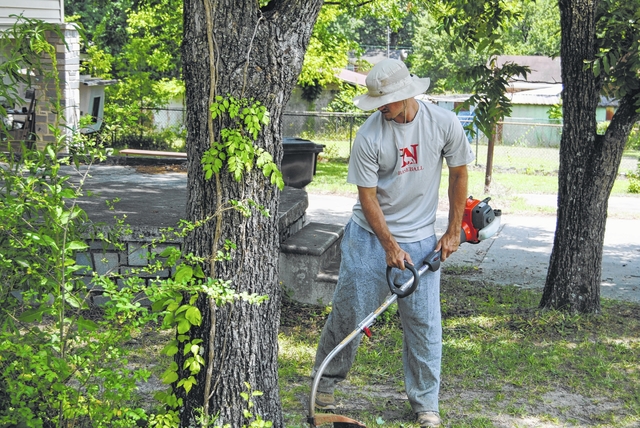

NEWBERRY COUNTY — Summer is officially here and people will start spending more time outside, whether they are working on their lawn, participating in football practice or just riding their bike.
Anyone looking to spend prolonged periods of time outside should keep in mind the dangers of overheating, and what could eventually lead to heatstroke.
“Heat exposure is a continuum, basically from being overheated, to heat exhaustion to heatstroke,” said Dr. Bruce Bourdon with Newberry County Memorial Hospital.
Someone who has become overheated is going to have problems with dehydration and fatigue. At the point of heat exhaustion, Bourdon said they are definitely dehydrated and they can have a fever, but they do not necessarily have to. Heat exhaustion can also cause fatigue, nausea and vomiting.
“When you get to heatstroke, you have pretty much lost your regulatory ability and it’s usually defined by an altered mental state. You are going to run temperatures over a normal regulatory temperature, the 105-106 range and you are severely dehydrated,” Bourdon said.
Laurel Stacey, physician assistant at Newberry County Memorial Hospital, added that patients can also get abdominal cramping and sometimes even diarrhea, which will make your symptoms worse because you will get more dehydrated.
“It is named heatstroke probably because of the change in their mental status. It can actually present almost like a stoke would, with neurological changes,” she said.
When patients get to the point of heatstroke, they will also no longer sweat.
“That is the bodies natural way of cooling itself, so it no longer has the ability to do so,” Stacey said.
Those who are more susceptible are usually the young and the elderly. Stacey added that athletes participating in summer practices are also more susceptible.
“You see it more so in the summer time, athletes that are out practicing a lot or it can happen to the elderly that are doing even light exertion in the hottest part of the day,” Stacey said. “I have seen it in roofers from past summers and I have seen it in a couple of cyclists doing long bike rides.”
The amount of time you would have to spend in the heat to get to heat exhaustion or heatstroke depends on the individual. If someone has an underlying medical condition, like a recent viral illness or diabetes, they could overheat faster.
Bourdon also said ambient temperatures and humidity are factors.
“Even the wind, because if you have a really good breeze you tend to lose more fluids without even knowing it, due to evaporation,” he said. “But again, physical exertion has a lot to do with it as well as what they have had to drink.”
While outside people should drink plenty fluids, like water and Gatorade (or any fluid that provides electrolytes). Caffeinated beverages and alcohol are fluids that people should avoid while they are trying to stay hydrated as these can make heat exhaustion worse.
“The issues when you start drinking soda, the sugar and caffeine in them will cause you to lose more fluids than you actually take in, especially caffeine,” Bourdon said. “It’s a diuretic … and you lose more fluids than you take in.”
Those who are looking to spend extended periods of time outside this summer should also take into account the times of day they will be outside.
Stacey suggests trying to do things during the cooler parts of the day, before 11 a.m. and after 7 p.m. Bourdon also suggests resting and taking breaks in a cool place.
Many around the county are doing their best to make sure they do not reach the point of heat exhaustion or heatstroke.
John Lopez, head athletic trainer at Newberry College, said they ask their student athletes to work out in the summer so they can get acclimated to the heat.
All of the outdoor practice fields have water stations and players can drink water whenever they need to. Lopez also said they ask players take a water break every 20 minutes. The practice fields have water tubs and if players do become overheated, they can get in and cool off.
Dell Lever, who runs Po’ Boys Lawn care, said that he drinks lots of water and takes breaks every 15 to 20 minutes. He also tries to work early in the morning to avoid the hotter parts of the day.
While heatstroke is less common than heat exhaustion, due to the fact many people start to feel bad and come to the Emergency Room, Bourdon said heatstroke can lead to death.
